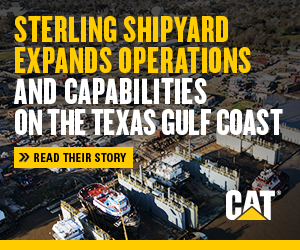EDITORIAL – June 2014
After making a blind start in the dredging industry without much knowledge about its intricacies I was immediately struck over and over at the beginning by how much our economy depends on dredging and the U.S. Army Corps of Engineers to keep the waterways open and goods flowing not to mention flood protection recreation and national security. And I’m sure I’m still missing some there.
In a conference booklet put together by the House Transportation and Infrastructure (T&I) committee entitled What Is WRRDA? the highlights emphasized not only the importance of our maritime infrastructure but the need for a strong federal responsibility in keeping it sound. Until the Water Resources Reform and Development Act (WRRDA) of 2014 had been passed this May Congress had been silent for years and abandoned its role in maintaining the vital waterway infrastructure.
In addition to numerous facts about the trillions of dollars of goods and millions of jobs that are dependent on maritime transportation and the benefit-to-cost ratio for flood protection What Is WRRDA? also went backwards to the origins of the country to find the foundation for this strong federal role in transportation.
After a poor try the first time around the framers of the Constitution came to understand the importance of the federal government in maintaining public works for commerce. I found it fascinating that part of the reason the Articles of Confederation failed was because they didn’t provide Congress with a means to regulate commerce between the states. In fact a dispute between Maryland and Virginia regarding navigation rights on the Potomac River was one reason for convening the Constitutional Convention. I didn’t remember that from American History class.
Article I Section 8 of the Constitution directed Congress to establish post roads and regulate interstate commerce laying the groundwork for the robust infrastructure network to come.
Most people don’t think about the importance of WRRDA everyday or the federal responsibility to our infrastructure or the need for dredging in their everyday lives. I didn’t think about it two years ago. Most people don’t realize how quickly the grocery shelves and gas stations would empty if that network suddenly stopped working. Most people take it for granted that groceries and gasoline will be there. This lack of attention to what it takes to make those things happen is evidenced no better than in the fact that Congress – the very people who are supposed to be thinking about these things – hadn’t passed waterways legislation in seven years and the tax system set up to fund the waterways wasn’t being used for that.
The waterways were in need of a good P.R. campaign and they got a great one – from coalitions like RAMP and other members of Congress and Congressional committees that got the word out about WRRDA – like the What Is WRRDA? booklet. Congressman Schuster even put out a YouTube video about WRRDA (www.youtube.com/watch?v=vSF7Uje6z_E).
We in the dredging industry are accustomed to hearing about these things. Most people that I meet in this industry are extremely proud of what they do and I think it is in part a sense of being part of something bigger something that feels important.
It’s not hard to preach to the choir and we often do but bringing attention to issues in the nation at large is the responsibility of the maritime industry interests especially the dredging sector which has done this and will continue to do it.
As Barry Holliday said after WRRDA was passed on May 23 the legislation authorizes a phase-in of the HTMF money and we must support RAMP and the other advocacy groups in making sure the appropriations for necessary dredging projects are increased starting now.
Anna Townshend
Editor IDR



